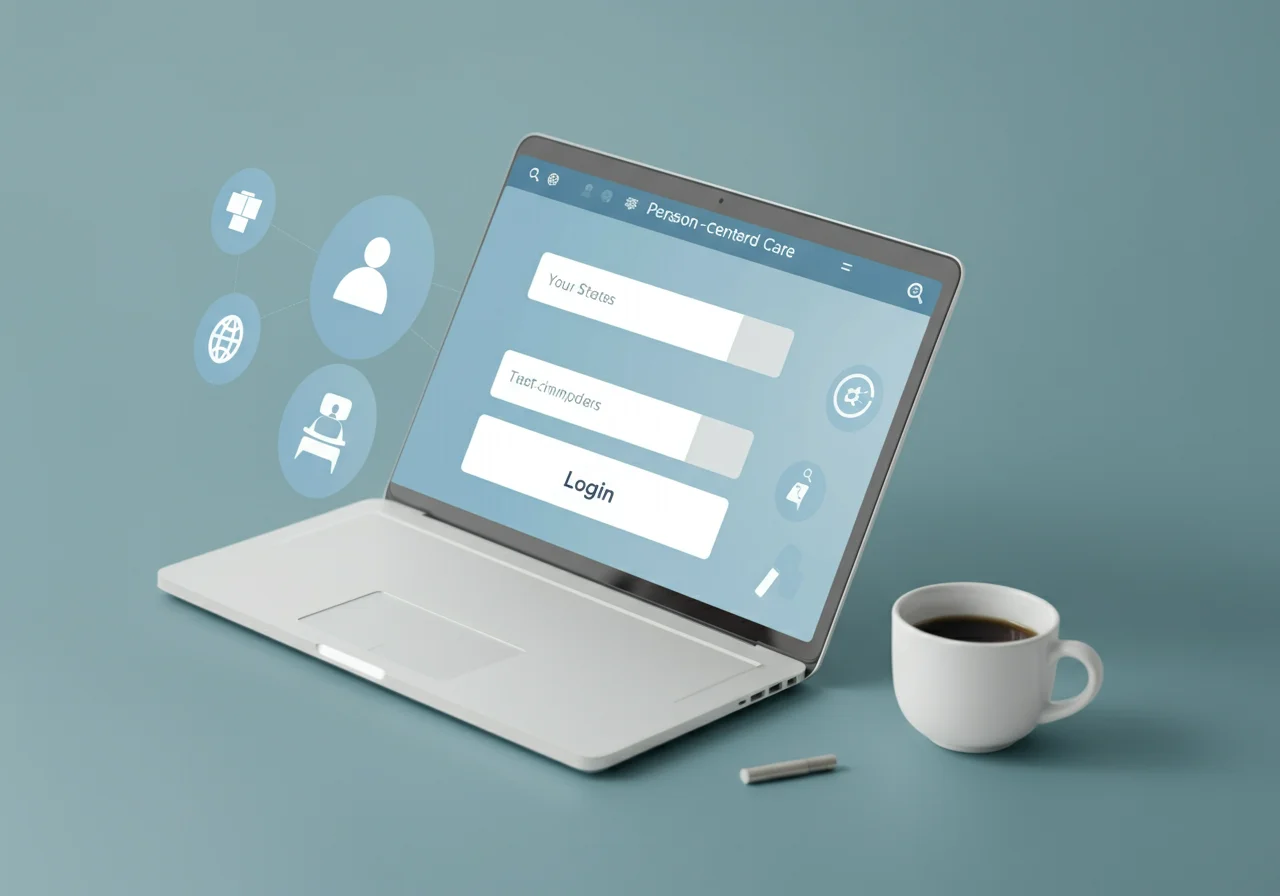Clinical research has evolved significantly over the past decade, with technology playing an increasingly vital role in how studies are conducted, data is managed, and participants are engaged. Person centred software login systems represent a revolutionary approach to managing clinical research platforms, putting the needs of both researchers and participants at the forefront of system design. These sophisticated access management solutions are reshaping how clinical research teams collaborate, ensuring that every stakeholder—from coordinators to investigators—can access the tools and data they need while maintaining the highest standards of security and compliance.
The shift toward person-centered approaches in clinical research isn’t just about technology; it’s about recognizing that successful studies depend on seamless collaboration between diverse teams and meaningful engagement with participants. Traditional research platforms often created barriers to access, with rigid login systems that failed to accommodate the varied roles and responsibilities within clinical research teams. Modern person-centered software addresses these challenges head-on, creating intuitive, secure, and role-specific access experiences that enhance productivity and data quality.
Overcoming Implementation Challenges
Implementing person-centered software solutions in clinical research environments presents unique obstacles that organizations must navigate carefully. Data security concerns top the list of challenges, as research teams handle sensitive patient information that must comply with strict regulatory requirements. Many organizations struggle with balancing accessibility and security, often erring too far in either direction—either creating systems so locked down that legitimate users face constant barriers, or implementing solutions that compromise data protection.
User access management represents another significant hurdle. Clinical research teams are diverse, including coordinators who need daily access to participant data, investigators who require oversight capabilities, data managers who must manipulate large datasets, and regulatory specialists who need comprehensive audit trails. Each role demands different levels of access, and traditional one-size-fits-all login systems simply cannot accommodate these varied needs effectively.
Integration with existing systems poses additional complications. Most clinical research organizations already have established workflows, legacy databases, and compliance protocols. New person-centered software must seamlessly integrate with these existing systems without disrupting ongoing studies or compromising data integrity. This integration challenge often requires careful planning, extensive testing, and phased implementation approaches to ensure smooth transitions.
Change management within research teams can also create resistance to new login systems. Team members who have grown accustomed to existing processes may be hesitant to adopt new technologies, particularly if previous system changes have caused disruptions. Successful implementation requires comprehensive training programs, clear communication about benefits, and ongoing support to help users adapt to new access protocols.
Essential Features for Different User Roles
Person-centered software platforms excel by providing tailored experiences for each type of user in the clinical research ecosystem. Clinical Research Coordinators benefit from streamlined login processes that provide immediate access to participant scheduling tools, data entry forms, and communication platforms. These professionals need quick access to real-time information during busy clinic days, and person-centered systems deliver customized dashboards that display the most relevant information immediately upon login.
Principal Investigators require oversight capabilities and comprehensive study monitoring tools. Person-centered login systems provide these leaders with executive-level dashboards that offer high-level study progress metrics, safety monitoring alerts, and team performance indicators. The login process automatically routes investigators to summary views while maintaining the ability to drill down into detailed data when necessary.
Data Managers need robust access to data manipulation tools, quality assurance features, and reporting capabilities. Person-centered systems recognize these users and provide specialized interfaces optimized for data review, cleaning, and analysis. These professionals can access advanced query tools, data visualization features, and export capabilities that support their analytical responsibilities.
Regulatory Affairs Specialists benefit from comprehensive audit trail access, compliance monitoring tools, and documentation management features. Upon login, these users are directed to regulatory-focused dashboards that highlight any compliance issues, pending regulatory submissions, and audit-ready documentation. The system maintains detailed logs of all user activities to support regulatory inspections and submissions.
IT Professionals receive administrative access to system configuration tools, security monitoring capabilities, and integration management features. Person-centered platforms recognize IT users and provide specialized interfaces for system maintenance, user management, and technical troubleshooting while maintaining appropriate security controls.
Comprehensive Security Measures
Security represents the cornerstone of effective person-centered software login systems in clinical research. Multi-factor authentication (MFA) has become standard, requiring users to verify their identity through multiple channels before accessing sensitive research data. This approach typically combines something the user knows (password), something they have (mobile device or security token), and sometimes something they are (biometric verification).
Access controls operate on the principle of least privilege, ensuring that users can only access the specific data and functions necessary for their roles. Person-centered systems implement role-based access control (RBAC) that automatically adjusts user permissions based on their authenticated identity and assigned responsibilities within specific studies. This approach minimizes the risk of unauthorized data access while maintaining workflow efficiency.
Data encryption protects information both in transit and at rest. Person-centered software platforms implement enterprise-grade encryption protocols that meet or exceed industry standards for healthcare data protection. This includes encrypted communication channels for all login processes and database-level encryption for stored research data.
Compliance with regulatory standards such as HIPAA, GDPR, and FDA 21 CFR Part 11 is built into the architecture of person-centered login systems. These platforms maintain comprehensive audit trails that document every user login, data access event, and system modification. This documentation supports regulatory inspections and provides the accountability necessary for clinical research integrity.
Session management features protect against unauthorized access by automatically timing out inactive sessions, monitoring for concurrent login attempts, and alerting administrators to suspicious access patterns. These features balance security requirements with user convenience, maintaining protection without unnecessarily disrupting legitimate work.
Real-World Success Stories
A mid-sized pharmaceutical company implementing person-centered software login systems for their oncology research division saw remarkable improvements in both efficiency and data quality. The implementation addressed previous challenges with delayed data entry and access difficulties that had been hampering their multi-site studies. After deploying the new system, data entry completion rates improved by 40%, and query resolution times decreased by 60%.
The success stemmed from the system’s ability to provide role-specific interfaces that eliminated navigation confusion. Research coordinators could quickly access patient scheduling and data entry tools, while investigators received automated alerts about safety events and study milestones. The streamlined login process reduced the time spent on system access from an average of 3 minutes to less than 30 seconds, allowing more time for patient care and data quality activities.
A large academic medical center’s experience highlighted the compliance benefits of person-centered login systems. Their previous platform struggled with audit trail requirements and user access documentation, leading to significant preparation time for regulatory inspections. The new person-centered system automatically generated comprehensive access logs and provided regulatory specialists with pre-formatted reports that met FDA requirements.
The implementation also improved collaboration between their distributed research teams. Investigators could securely access study data from multiple locations, while maintaining appropriate oversight of coordinator activities. This flexibility proved particularly valuable during the COVID-19 pandemic when remote work became necessary for many research activities.
Future of Person-Centered Research Access
Person-centered software login systems represent more than just an improvement in access management—they signal a fundamental shift toward putting user needs at the center of clinical research technology design. These systems deliver tangible benefits including improved efficiency, enhanced security, better compliance management, and increased user satisfaction across diverse research teams.
The evidence from successful implementations demonstrates that investing in person-centered login solutions pays dividends in terms of study quality, team productivity, and regulatory compliance. Organizations that embrace these technologies position themselves for success in an increasingly competitive clinical research landscape.
As artificial intelligence and machine learning capabilities continue to advance, person-centered software platforms will become even more sophisticated, predicting user needs and proactively providing relevant information and tools. The future of clinical research access lies in systems that truly understand and adapt to the unique requirements of each user and study context.

